

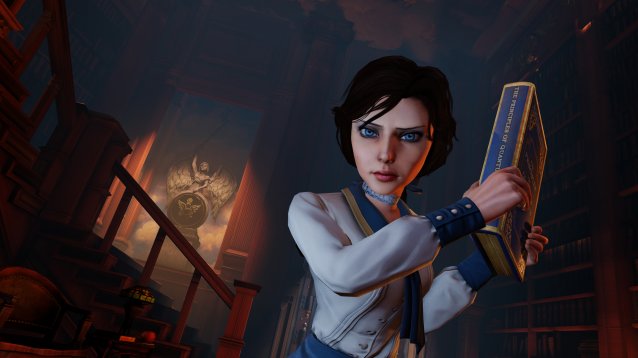
You have been tasked to get a girl from Columbia. “Get us the girl and wipe away the debt,” they said. You think to yourself: “This is like that time I tried to save the President’s daughter from zombies and she kept getting herself kidnapped,” but you do it anyway because, let’s face it you have to. It’s a part of the game.
After a few hours you find the girl. Looking through the glass you see an innocent-looking artsy-type in a schoolgirl outfit and you think the worst. “The rest of this is going to be a companion mission isn’t it?” You approach her, ready to be the masculine hero, and then she hits you in the face.
Well, didn’t see that coming.
This is part of the fun of Elizabeth, your character Booker DeWitt’s support, companion, and confidant. You never know what you are going to get from her because she doesn’t act like a typical AI. Even before the game was released, creators were talking about this character, how they made her, and how they put every ounce of effort they had into making her as realistic as possible. I was eager to see just what they meant when they said “realistic” for an NPC but my expectations weren’t high.
Then I saw Ken Levine, Creative Director of Irrational Games, speak at this year’s PAX East to a completely packed theater. People sat eager to get a glimpse of the game just days before it came out, and hear Levine speak. To his right sat a few people who he later introduced as the primary team behind Elizabeth. The more notable ones were Amanda Jeffrey, level designer, Heather Gordon, motion capture actress, and Courtnee Draper, voice actress. These three women, along with now famous cosplayer turned character model Anna Moleva, all make up a small piece of Elizabeth. The story they tell the audience is in many ways more interesting than the one that Infinite tells you about the character because it's not just a story about one person, but about many people coming together to become that one person.
The women all indulge us in stories from the creative process, and they range from complicated to painful to funny. Draper recalls how producers had to scream at her to make her cry for an emotional scene and the accompanying video is slightly heart-wrenching to watch. Gordon attempts to articulate how difficult it was to not only record difficult movements such as running in heels, but to embody another human being. Based on Elizabeth's personality, how would she move her body in reaction to a certain object, for example? The video that they show during the panel demonstrates just how complex this process was, showing warehouses big enough for movie sets for Graham to dictate movements.
This is why it becomes enchanting when you see her interact with the world around her. During one scene, you wake up on a beach and you find Elizabeth curiously touching objects, throwing rocks into the ocean, and dragging you onto a dance floor. Throughout the game Elizabeth will sit down on benches, slouch in times of stress, and hop around when in a good mood. Moleva’s bone structure adds to her having a familiar face, almost getting rid of the uncanny valley completely. There were times I became hypnotized staring into her tearful eyes. It’s really easy to forget that this mass of programmable data is only a “giant machine” as Levine called it instead of being a real person. Sometimes even Irrational forgot this, and took to calling her “Liz.”
From the panel it seemed that the studio was focusing more on her than DeWitt, despite him being the player’s avatar into Columbia. Sure we get the flashbacks and the point of view expected of a Bioshock game. We learn about his past and what brings him into the events of the game, but we never really hear his thoughts on what’s going on unless he’s speaking to Elizabeth. While his initial motivations revolve around some mysterious debt that isn’t revealed until the very end of the game, they eventually evolve to being Liz-centric. This does not mean that she is the traditional damsel that DeWitt falls in love with and must save throughout the game. Infinite transcends tropes and focuses more on developing her as a human and less of a trophy. She is something that he must constantly work for, and it isn’t for romance. It’s to develop his character as well as hers.
Despite this, it isn’t even DeWitt’s character that becomes the focus of the story. Having Elizabeth gain strength from the events that happen to her, and to learn her own mysterious origins (everyone in this game has secrets) is the key to developing the main plot. She starts off as the wide-eyed, feminine voice of reason but becomes something entirely different at the game’s conclusion. This transition is emotional and it’s thanks to the efforts of the team, who decided that Elizabeth was going to become Liz.
To have a person in any storytelling medium that reacts to a series of causations is natural, but to have one that grows, matures, and becomes even more complex is something that only expert writers can create.
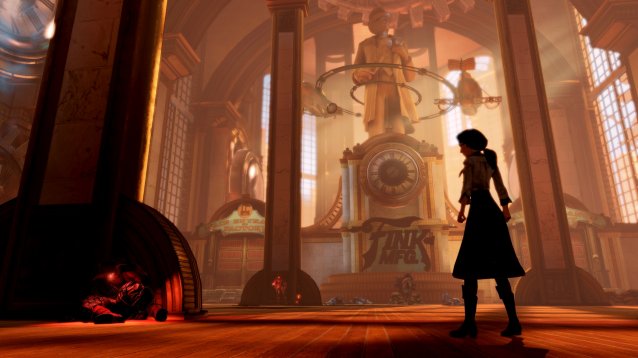
Minus the story—which has been critically praised all over the place—her position in the world is expertly planned. She interacts with her environment, but she mostly stays out of the way during combat and other missions. A tip from the game tells you not to worry about her, and you really don’t have to. She shows up exactly when she needs to in order to provide you with health and ammo. When you need her to open inter-dimensional tears she does this despite her distance from you. She lacks most of the flaws of typical NPCs in games; less like a computer program and more like a person who stays out of the way when bullets are flying.
“I stumbled into a mission,” said Levine at the start of the panel about the sequel. He said that it encompassed the “experiences I wanted to have as a gamer.” This was something that was repeated throughout the talk, but it’s something that needed to be emphasized.
It might be presumptuous, but could it be said that Elizabeth is not only one of the best AIs in video games, but is one of the best characters of all time? Well yes it is presumptuous to say that, but a character that had so much of an impact on the gamer can't be ignored.


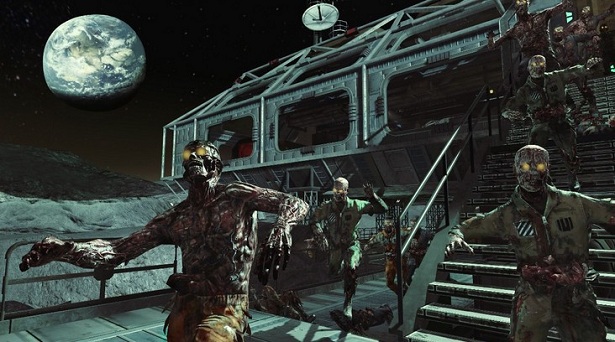
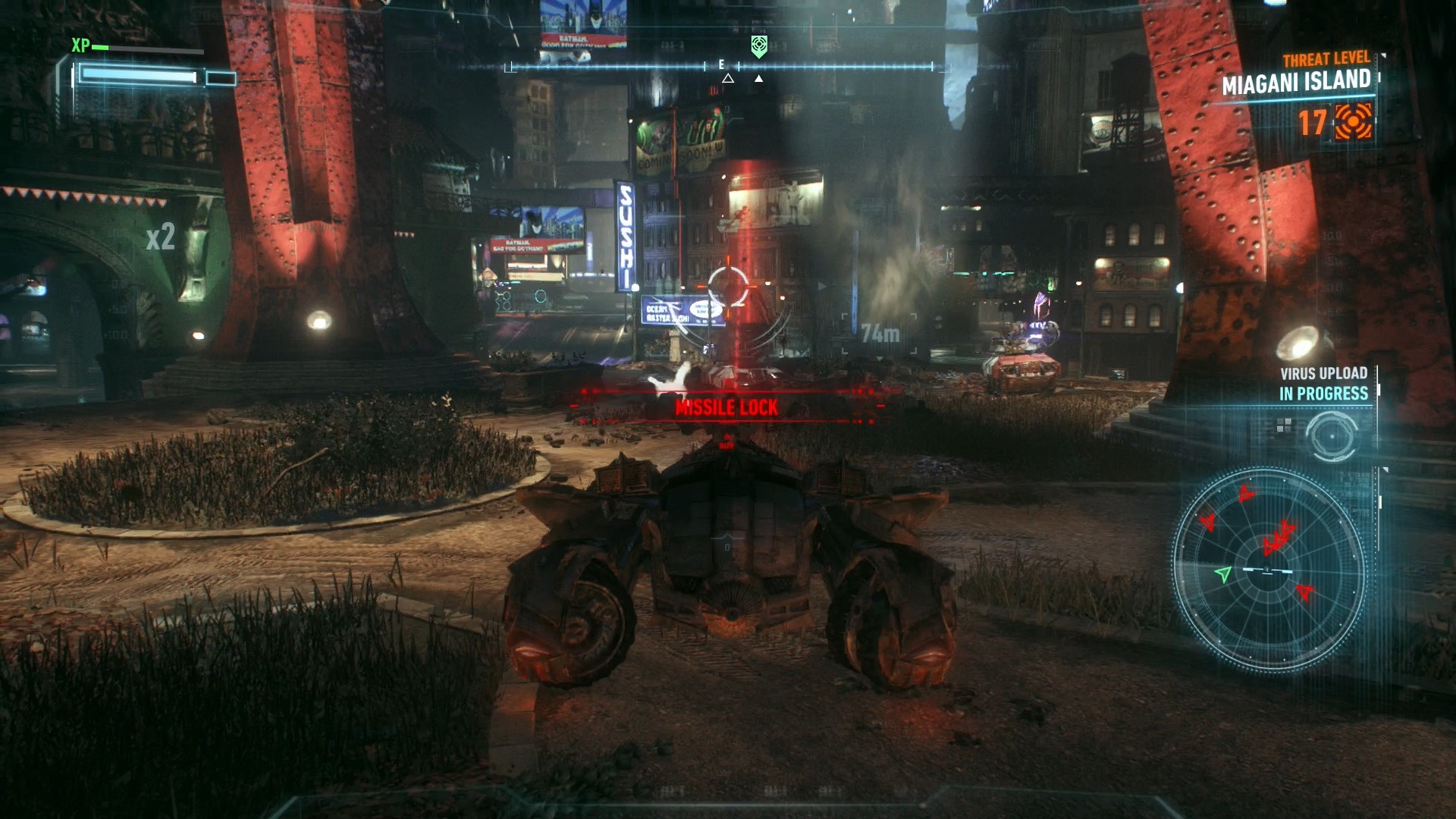
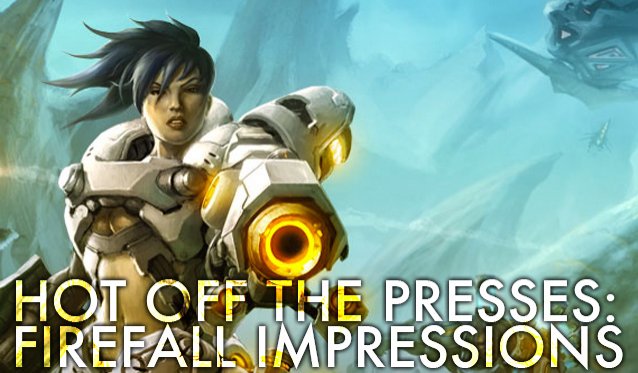 Hot off the Presses: Firefall Impressions
Hot off the Presses: Firefall Impressions Beyond Your Computer: 5 Ways Ransomware Will Take You Captive in the Future
Beyond Your Computer: 5 Ways Ransomware Will Take You Captive in the Future Star Wars Battlefront’s Recommended System Specs revealed
Star Wars Battlefront’s Recommended System Specs revealed 3 Science-Backed Steps to Finally Achieve Your Goals
3 Science-Backed Steps to Finally Achieve Your Goals Watch Dogs Burner Phones Locations List
Watch Dogs Burner Phones Locations List